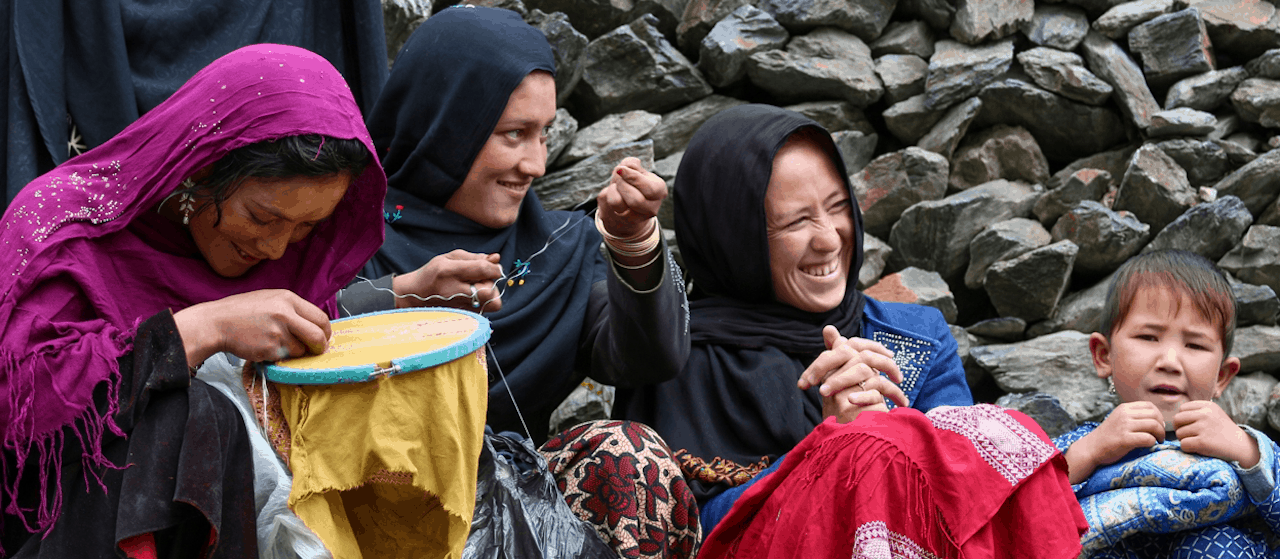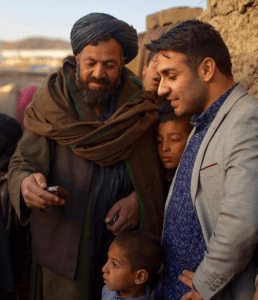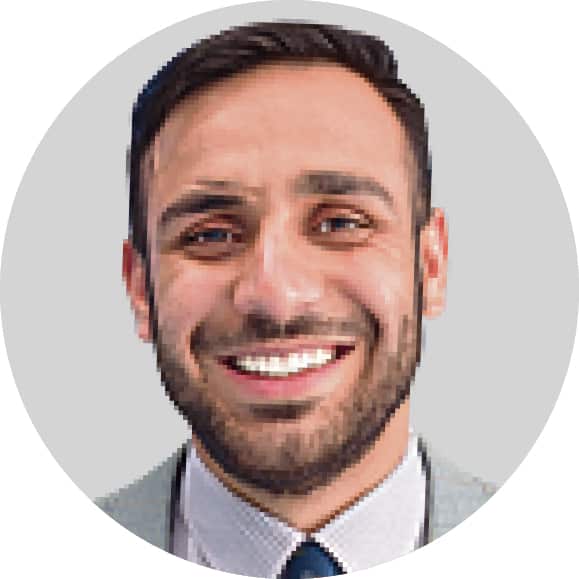
Globalization seemingly creates an ever more connected world, resulting in a growing interdependence of the world’s economies, cultures and populations. However, the way globalization influences regions, countries and individuals differs considerably depending on where you are and who you are. For example, markets in developing economies are interesting to the more developed world primarily as recipients of their consumer goods. At the same time local producers do not have the same access to global markets to sell their own products. This leads to a low level of agency for local producers, i.e. their ability to influence their economic success through their own efforts. Local initiatives are trying to change this – with the help of technology.
We Need a New Understanding of Global and Local Markets
Nasrat Khalid, founder of AWAL, Development and Transformation and a Young Global Changer of 2017 as well as current YGC Ambassador, was born in Afghanistan, a country which belongs to the most conflict-ridden countries in the world. It has become a large receiver of international aid. Nasrat grew up outside Afghanistan but returned when he was 17. Since then he has been engaged in international development projects with the World Bank, USAID, UN as well as other major development donors and implementers. Nasrat argues that new approaches are needed to bring positive changes to people. This must include a new understanding of local and global markets as well as a better understanding of the potential and the limits of technology.
Technology Alone Falls Short as a Driver for Change
While growing up, Nasrat believed that technology could be the primary tool that challenges current systems and addresses the world’s most pressing issues. Today, Nasrat argues that the work of some of the most innovative technology companies in the US or Europe is very interesting from a technology perspective, but ultimately does not offer much real-life impact for many people, countries or even regions of the world. At a recent event on Globalization in Berlin, Nasrat used the popular app Snapchat as an example and emphasized that current tech leaders are focused too much on things like face filters rather than bringing about tangible change for people who need it.

“Globalization Starts With Inclusiveness”
At the event “Forum Globalization”, Nasrat went on to say that “development is personal and actual globalization starts with inclusiveness from all parts of the world – including the most vulnerable states – where we start building from the foundations.” He added that recent international developments, such as Brexit in the UK, the current US administration pulling out of international agreements, and the overall hail of the global protectionist movements, may be perceived as a ‘change in the norm’ for developed countries. However, this has been the status quo for many of the less developed countries around the world. For years underdeveloped countries have been judged as liabilities instead of viewing them as potential partners for a truly globalized world that benefits all. One of the solutions that Nasrat presented was his work on a new platform called ASEEL, Everything handmade, which aims to be a tool for inclusive trade.
Increasing Global Connectivity
Currently, Nasrat’s platform is comprised of eight vendors from central and rural Afghanistan. Most of the artisans are women who have had the custom of creating different handmade products as part of their heritage. The platform offers a variety of Afghan handmade goods to the global consumer. Nasrat states that “in a world of mass produced and commercialized consumption, well-made handicrafts are hard to come by”. Platforms and tools which sell local artisans’ products directly on the global market can offer country-specific items “which your typical shopper won’t be able to access anywhere else”, says Nasrat. The ability for local producers in the developing world to make their products available to an international market aims at connecting them to global markets and thereby strengthening their agency and economic self-determination.
Combining IT Skills With Passion for Development
Nasrat and his team have combined their skills in IT and systems architecture with passion for development to make the case for a new model of international development. The project extensively relies on technology. The custom supply chain that provides pick up of handmade products from the most rural areas of Afghanistan to more developed countries uses extensive tracking that makes transparent and easy deliveries possible. Nasrat is now trying to further develop the platform with adoption of Machine Learning (ML) algorithms and augmented reality (AR) to give a more personal experience to the customers. The aim is to allow customers to try out the products before buying them. The focus on technology is intentional to provide a real-life case of how the most advance technologies can be used in geographies with little to no technology or finance infrastructure.
Help to Empower Local Producers and Artisans
Nasrat is calling on other active Young Global Changers and those in their network to join him in this endeavor. His platform is being piloted in Afghanistan, but it has further reaching impacts when one thinks about the availability of traditional handmade products made by artisans all over the world. Nasrat is attempting to do what large international businesses and international trade agreements are failing to deliver, which is to create a sustainable market for the sale of goods from rural countries to the global markets using the economics of supply and demand and an ethical focus on transparent transactions that go directly back to the otherwise disconnected and disempowered artisans.
ASEEL is looking to grow from its pilot stage and is seeking partners, funding, and members interested in making real impact on a pressing international development issue. If you or someone you know might be interested, have them check out Nasrat and his team’s work on their website and reach out to the team directly for partnership opportunities.
___
The views and opinions expressed in this article are those of the authors and do not necessarily reflect the views of the Global Solutions Initiative.
___

Nasrat, Young Global Changers Ambassador and Young Global Changer of 2017, is experienced globally on finding potential in people and organizations to work more efficiently. He has founded AWAL, is specialized in Tech, Economic Growth, Development, Innovation and Entrepreneurship. Nasrat has presented in global forums, conferences and is a TEDx speaker.
